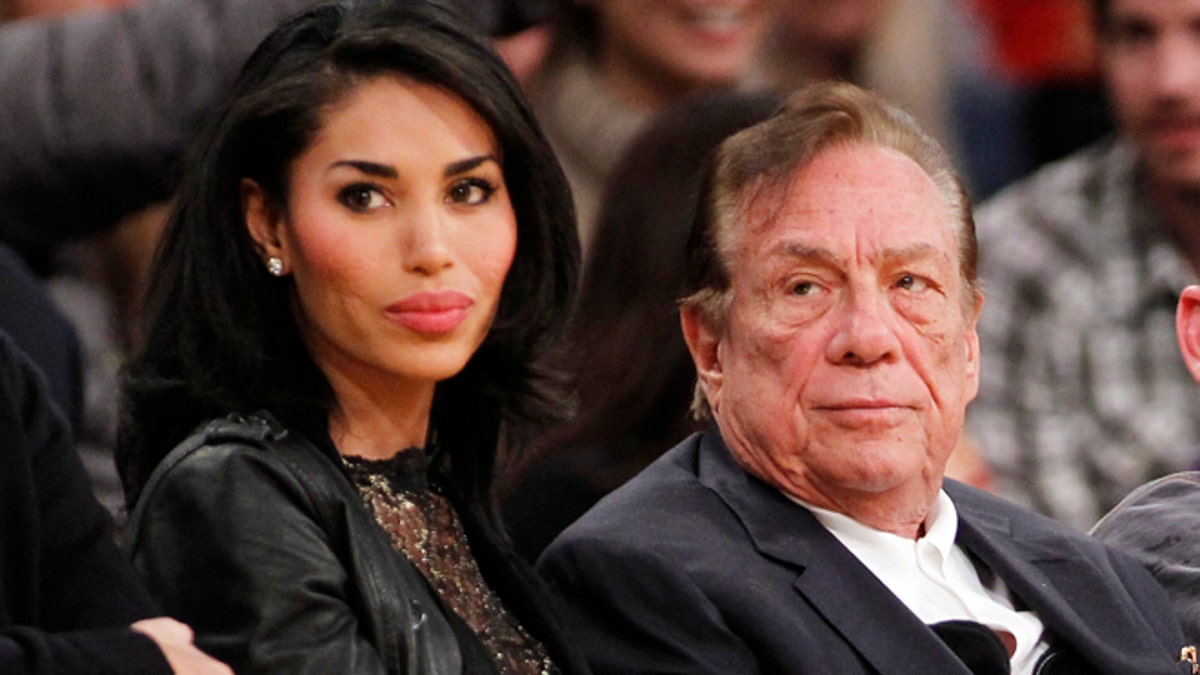
Donald Sterling and V. Stiviano in a Dec. 19, 2010, file photo. (ap)
Her recordings helped bring down one of the most powerful men in basketball.
But she's not exactly happy about it.
V. Stiviano, the Latina woman whose phone conversation with Los Angeles Clippers owner Donald Sterling triggered a explosive scandal that shook up the NBA, said she was “very saddened” that baseball officials banned him from the sport for life.
V. Stiviano said she “never wanted any harm to Donald,” lawyer Mac Nehoray told The Los Angeles Times.
The lawyer said that Stiviano did not release the damning tapes that feature Sterling chastising her for bringing African-American players, including NBA great Magic Johnson, to Clippers games. Stiviano is very upset about the tape coming to light and believes “someone released it for money,” Nehoray said.
“My client is devastated that this got out,” he added.
Stiviano’s lawyer said that she and Sterling never had a sexual or romantic relationship and that media portrayals of her as his mistress, including a lawsuit filed by Sterling’s wife that portrayed her as a money-hungry gold-digger, are erroneous.
“It’s nothing like it’s been portrayed,” Nehoray said. “She’s not the type of person everyone says.”
The lawyer described Stiviano as a hard-working woman who worked as a waitress and volunteered helping crime victims before she became an “archivist” for Sterling.
Amid widespread calls for action against Sterling, NBA Commissioner Adam Silver delivered Tuesday one of the harshest penalties in the history of U.S. sports: a lifetime ban from the league and a $2.5 million fine. Despite Sterling's donations to black causes and the rich contract he gave the game's top black coach, Silver also promised to convince owners to force a sale of the Clippers over the 80-year-old Sterling's "hateful" demands to Stiviano.
"He has a right to his beliefs, to his thoughts. He has a right to free speech. He doesn't have a right to be an owner of an NBA franchise," said Dr. Harry Edwards, a scholar of race and sports who has worked as a consultant for several professional teams.
"We can't remove racism from American society any more than we can remove murder," Edwards said. "But just because we can't remove it, that doesn't mean we shouldn't fight it."
The Associated Press contributed to this report.
Follow us on twitter.com/foxnewslatino
Like us at facebook.com/foxnewslatino
